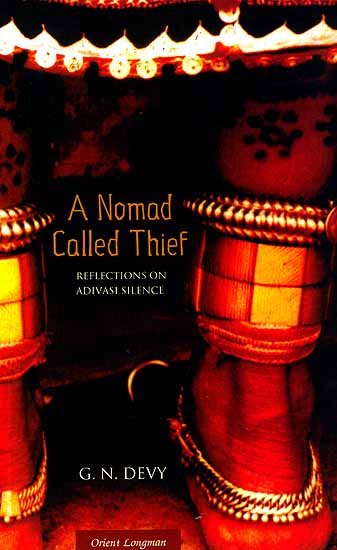TRIBES IN TRANSITION:
CONFLICT OVER IDENTITY, RESOURCES AND DEVELOPMENT
12-13 March, 2014 at Visva-Bharati University
Santiniketan, West Bengal
Organized by the Department of English, Jamia Millia Islamia, New Delhi,
In collaboration with the Ghosaldanga Bishnubati Adibasi Trust, Santiniketan,
&
Funded by the Indian Council of Social Science Research, New Delhi
Concept note
The State shall promote with special care the educational and economic interests of the weaker sections of the people, and, in particular, of the Scheduled Castes and the Scheduled Tribes, and shall protect them from social injustice and all forms of exploitation. – Article 46, The Constitution of India
Introduction: According to the 2001 Census Report, the indigenous people of India – known as the Scheduled Tribes and also as Adivasis – compose 8.14 per cent of the total population of India. There are 697 tribes notified by the Central Government under Article 342 of the Indian Constitution, with major concentrations of them in the states of Madhya Pradesh, Chhattisgarh, Orissa, West Bengal, Jharkhand and Gujarat. According to G.N. Devy in his book, Adivasis: Legal Provisions, Languages, Locations (2004), the criteria for identifying a community as a Scheduled Tribe are as follows:
- Indication of primitive traits
- Distinctive culture
- Geographical isolation
- Shyness of contact with the community at large
- Backwardness
It is worth noting that urban middle-class Indians still view the tribal in terms of the primitive/ civilized dichotomy either as a ferocious and uncouth savage or as a childlike primitive unsullied by the vices of civilization. In the post-Independence period, there has been a great deal of “culture contact” between the tribal people and mainstream society, leading to acculturation, displacement and other related changes among the tribes. This is broadly referred to as “transition”. In recent years, the “tribal in transition” has been the subject of many literary and cinematic representations as well as of many studies conducted by scholars of Subaltern Studies and Cultural Studies.
Objectives: This Conference will deal with the sense of Angst being felt by the tribal people of contemporary India. While this Angst is a direct result of exclusion from their traditional rights over resources, it is aggravated by their extreme deprivation and exploitation at various levels. In recent times, the tribal people have been involved in struggles relating to identity, resources and development. These have found expression through multiple voices ranging from the quiet introspection of poetry to the fiery sloganeering of politics. To examine the Angst of the tribal people and to delve deeper into their collective experience of loss and transition, this Conference will bring scholars of various disciplines together with social workers and tribal writers in an enriching polyphonic discourse. Besides panel discussions by scholars, translators and social workers, there will also be a Writers’ Meet. It is hoped that the Conference will provide a much-needed balance between the “tribal in transition”, the social workers and the larger world of academia.
Collaboration & Funding: The Conference is being organized under the aegis of the Department of English, Jamia Millia Islamia Central University (JMI), New Delhi, in collaboration with the Ghosaldanga Bishnubati Adibasi Trust (GBAT), which is a tribal NGO registered under the Indian Trust Registration Act, 1982, and based in Santiniketan, West Bengal. The Conference is being funded by the Indian Council of Social Science Research (Ministry of Human Resource Development), Post Box. No. 10528, Aruna Asif Ali Marg, New Delhi-110067, India.
Themes (papers, panel discussions and readings)
- Tribal Cultural Heritage and Conflict over Identity
- Translation and Publication of Tribal Literature
- Tribal Women and Human Trafficking
- Tribal Healthcare and Community Development
- Writers’ meet
- Tribal Youth: Problems of Employment

Reflections on Adivasi Silence and Voice by Ganesh [G.N.] Devy | Publications >>
A call for harnessing the potential of Denotified Tribes, Nomadic and Semi-Nomadic Tribes for national development: “India’s labour force must be liberated from an abhorrent colonial doctrine (‘criminality by birth’)” – Report and Recommendations of the Technical Advisory Group | “Adivasi”, “Tribals” and “Denotified tribes” (classifications in different states) >>
Key Speakers:
- Dr. G. N. Devy
- Prof. Virginius Xaxa
- Prof. Ranjit Kumar Bhattacharya
- Prof. Kumkum Bhattacharya
- Dr. Joseph Bara
- Nirmala Putul
Source: Message, concept note of the conveners (14-2-14):
Dr. Ivy Imogene Hansdak, JMI (Convener)
– also read: “Is tribal identity relevant in today’s world?” Inaugural Speech for “Tribes In Transition-II: Reaffirming Indigenous Identity Through Narrative”
Dr. Boro Baski, GBAT (Co-Convener)
– also read: The Santals by Boro Baski
The conference will be followed by the Santal Spring Festival celebrations on 14th March 2014.